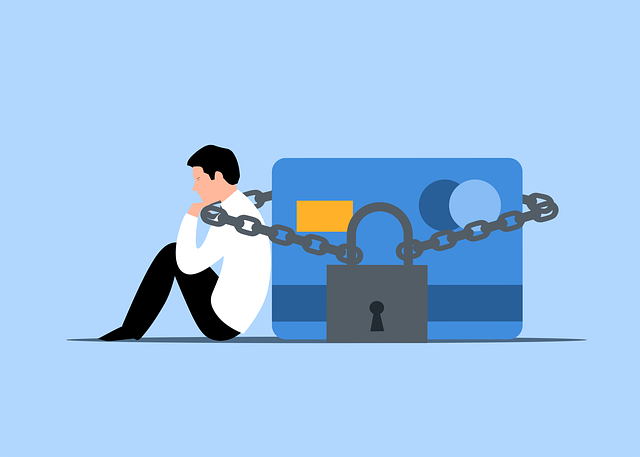Debt consolidation in South Africa is a popular strategy for managing multiple high-interest debts by combining them into one loan with lower rates. While it simplifies repayment and saves on interest, suitability depends on individual factors like credit history and current rates. Tax implications exist, with potential interest deductions under specific conditions; consulting a tax professional is advised. A strategic approach is crucial: assess your financial situation, consult reputable advisors for guidance on consolidation options (personal loans, credit cards), negotiate favorable terms, and ensure long-term financial stability and freedom from overwhelming debt.
In the face of mounting debts, South Africans often seek solutions like debt consolidation. This comprehensive guide delves into the intricacies of debt consolidation, focusing on its benefits and challenges within the unique South African context. We explore how this process works, dissecting the tax implications that come with it. Additionally, practical tips are provided to navigate the consolidation journey successfully. Discover how consolidating your debts can be a strategic move towards financial stability in South Africa.
- Understanding Debt Consolidation: A Comprehensive Guide
- How Does Debt Consolidation Work in South Africa?
- Tax Considerations and Implications for Debt Consolidation
- Navigating the Process: Tips for Successful Debt Consolidation in SA
Understanding Debt Consolidation: A Comprehensive Guide

Debt consolidation is a strategic financial move that involves combining multiple debts into one single loan with a lower interest rate. This process simplifies repayment by offering a more manageable payment structure, typically over an extended period. In South Africa, where high interest rates and diverse borrowing options can make managing debt challenging, consolidation presents a valuable tool for individuals seeking to regain control of their finances.
When considering the consolidation of debt in South Africa, it’s crucial to understand various factors. Lenders often bundle credit cards, personal loans, and other debts into one loan, which can significantly reduce monthly payments. However, this isn’t always the case; the suitability of consolidation depends on individual circumstances, including credit history and current interest rates. Therefore, a comprehensive guide is essential to ensure individuals make informed decisions when navigating the consolidation process in South Africa.
How Does Debt Consolidation Work in South Africa?

In South Africa, debt consolidation is a popular strategy for managing multiple debts under one roof. This process involves combining various high-interest loans or credit card balances into a single loan with potentially lower interest rates. The consolidation loan is then used to pay off the existing debts, simplifying repayment and saving on interest expenses. This method can be particularly beneficial for South African consumers burdened by high debt levels and multiple lenders.
The consolidation of debt in South Africa typically involves working with a financial institution or a lender that offers this service. Borrowers provide details of their existing debts, including the outstanding balances and interest rates. The lender then structures a new loan tailored to the borrower’s needs, often with a lower overall interest rate and more manageable repayment terms. By consolidating, borrowers can reduce the stress of multiple payments each month and potentially free up some financial flexibility.
Tax Considerations and Implications for Debt Consolidation

When considering debt consolidation in South Africa, understanding the tax implications is crucial. This process involves combining multiple debts into a single loan with potentially lower interest rates and more manageable terms. However, it’s important to note that this can impact your taxable income and overall financial situation. In South Africa, interest paid on consolidated loans may be deductible from taxable income, providing some tax relief for individuals burdened with debt. This deduction is subject to certain conditions, such as the loan being used for qualified business or investment purposes.
The consolidation of debt in South Africa can also affect your tax obligations and deductions. It’s essential to consult a tax professional who can guide you through the process, ensuring compliance with local regulations. They will help you navigate the complexities and provide insights into potential savings or adjustments related to your debt consolidation plan.
Navigating the Process: Tips for Successful Debt Consolidation in SA

Navigating the process of debt consolidation in South Africa requires careful consideration and planning to ensure success. The first step is to thoroughly assess your financial situation, listing all debts and calculating the interest rates associated with each. This enables a strategic approach when considering various consolidation options available in SA, such as personal loans or credit cards designed for debt consolidation.
Engaging with reputable financial advisors or experts in debt consolidation can provide valuable guidance. They can help negotiate with lenders on your behalf, ensuring you secure the best possible terms and rates tailored to your circumstances. Remember, a successful consolidation strategy aims to reduce interest expenses and simplify repayment schedules, ultimately leading to financial stability and freedom from overwhelming debt obligations.
Debt consolidation can be a powerful tool for managing finances in South Africa, offering clarity and potentially lowering tax liabilities. By understanding the process, its advantages, and the associated tax implications, individuals can make informed decisions to improve their financial health. When approached strategically, the consolidation of debt in South Africa can lead to significant savings and a more stable future.

